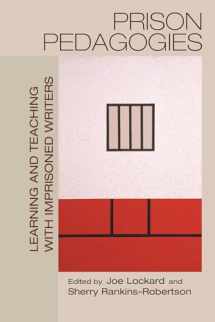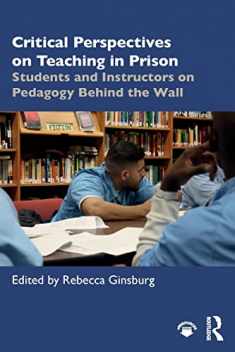
Prison Pedagogies: Learning and Teaching with Imprisoned Writers
Book details
Summary
Description
In a time of increasing mass incarceration, US prisons and jails are becoming a major source of literary production. Prisoners write for themselves, fellow prisoners, family members, and teachers. However, too few write for college credit. In the dearth of well-organized higher education in US prisons, noncredit programs
established by colleges and universities have served as a leading means of informal learning in these settings. Thousands of teachers have entered prisons, many teaching writing or relying on writing practices when teaching other subjects. Yet these teachers have few pedagogical resources. This groundbreaking collection of essays provides such a resource and establishes a framework upon which to develop prison writing programs.
Prison Pedagogies does not champion any one prescriptive approach to writing education but instead recognizes a wide range of possibilities. Essay subjects include working-class consciousness and prison education; community and literature writing at different security levels in prisons; organized writing classes in jails and juvenile halls; cultural resistance through writing education; prison newspapers and writing archives as pedagogical resources; dialogical approaches to teaching prison writing classes; and more. The contributors
within this volume share a belief that writing represents a form of intellectual and expressive self-development in prison, one whose pursuit has transformative potential.


We would LOVE it if you could help us and other readers by reviewing the book
Book review




